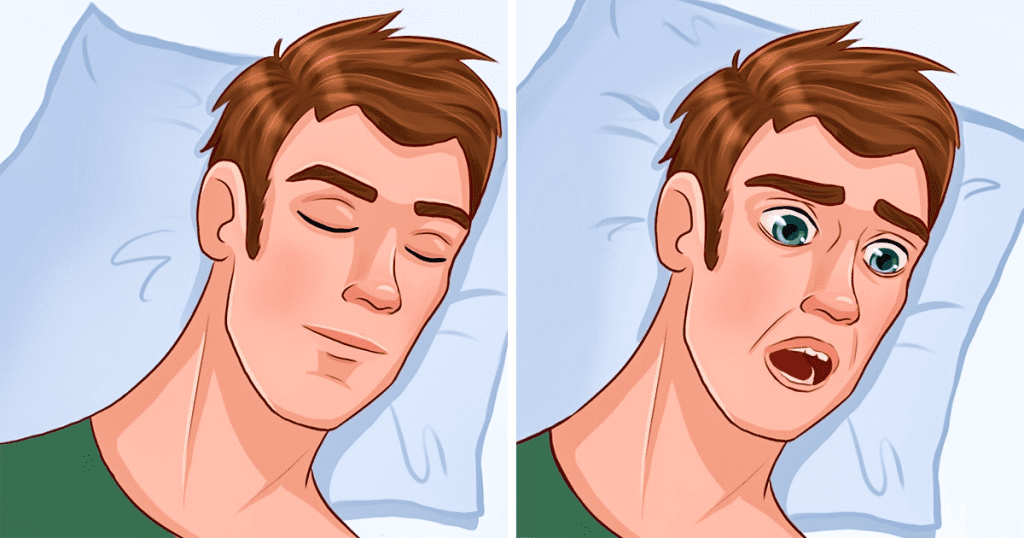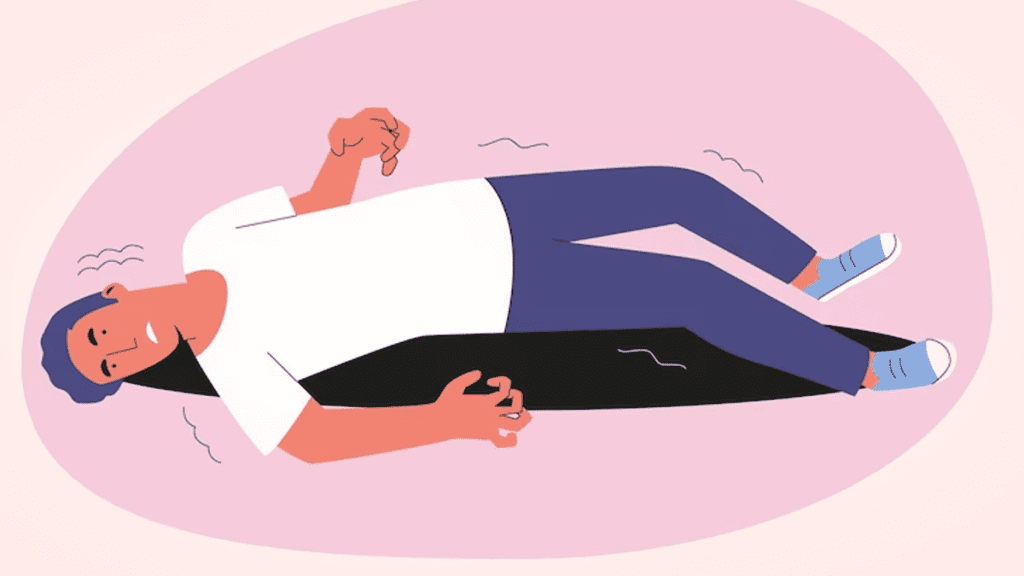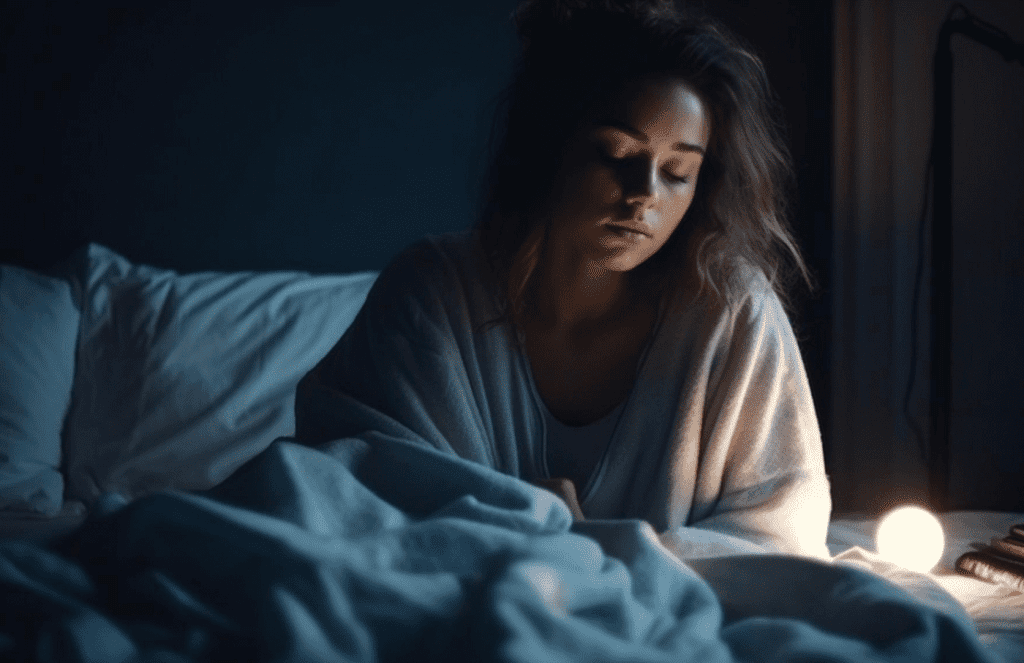You’re drifting off to sleep peacefully when suddenly you jolt awake with a sensation of falling into an abyss. It’s unsettling, isn’t it? This strange phenomenon is far more common than you might think, and while it can feel alarming, it’s usually harmless. But what exactly causes it? Should you be concerned? Let’s dive into the fascinating science behind these unexpected sleep disturbances.
The Mystery of Hypnic Jerks: Why We Suddenly Jolt Awake

The sensation of falling while sleeping is often accompanied by a sudden jerk or twitch in the body. This involuntary muscle contraction is known as a hypnic jerk, also referred to as a sleep start. It occurs during the transition between wakefulness and sleep, surprising many people who experience it.
What Does a Hypnic Jerk Feel Like?
If you’ve ever experienced a hypnic jerk, you probably recognize some of these sensations:
- A sudden muscle spasm that wakes you up.
- The feeling of falling off a cliff, stairs, or your bed.
- A quick flash of a dream or hallucination just before waking up.
- A mild shock or twitch in your arms, legs, or entire body.
Interestingly, hiccups belong to the same family of muscle spasms known as myoclonic jerks, meaning they share a similar neurological cause with hypnic jerks.
Video :Ever feel like your falling with you’re falling asleep?
Why Do These Jolts Happen?
Scientists haven’t pinpointed an exact cause for hypnic jerks, but several leading theories help explain why they occur.
One explanation is that when you start to fall asleep, your body naturally begins to relax. Your breathing slows, your muscles loosen, and your heartbeat decreases. However, sometimes, your brain misreads this sudden relaxation as a sign that you’re in danger—like falling from a height.
In response, your brain sends an urgent signal to your muscles, causing a sudden contraction to “protect” you. This reaction is similar to how your body jolts awake when you dream about tripping or falling.
Another theory suggests that hypnic jerks are an ancient survival mechanism. Long before humans had beds, our ancestors slept in trees to avoid predators. A sudden muscle jerk may have been the brain’s way of ensuring that they weren’t falling out of the tree. This reflex may have helped them quickly adjust their position to avoid danger. While we no longer sleep in trees, the instinct may still be wired into our nervous system, causing these nighttime spasms.
What Makes Hypnic Jerks More Likely to Happen?
Although anyone can experience hypnic jerks, certain factors increase their frequency.
Stress and anxiety can make it harder for your body to fully relax, leading to an increased chance of experiencing a hypnic jerk. If you’re feeling overwhelmed or anxious, your brain remains in a hyper-alert state, which might make it send unnecessary signals to your muscles.

Drinking too much coffee, tea, or energy drinks before bedtime can over-stimulate your nervous system, making your muscles more prone to twitching.
While regular exercise is excellent for sleep, intense physical activity late in the evening can keep your muscles in a heightened state of readiness, making it harder for them to fully relax.
Not getting enough sleep or having an inconsistent bedtime can lead to a more abrupt transition between wakefulness and sleep, increasing the likelihood of hypnic jerks.
Should You Be Worried About Hypnic Jerks?
Good news—hypnic jerks are generally harmless! Research suggests that 60% to 70% of people experience them at some point in their lives, regardless of age or gender. They are considered a normal part of the sleep process rather than a disorder.
However, you should consider seeing a doctor if they happen frequently and disrupt your sleep, you experience other symptoms such as muscle cramps, chronic fatigue, or unusual movements during sleep, or if you have sleep paralysis or frequent hallucinations when waking up. These could be signs of an underlying condition, such as Restless Leg Syndrome (RLS) or a neurological disorder, which might require further evaluation.
Video : Why Do We Twitch Before Falling Asleep?
How to Reduce Hypnic Jerks and Sleep Better
While hypnic jerks can’t always be prevented, certain lifestyle changes can help reduce their frequency.
Creating a relaxing nighttime routine can help signal to your body that it’s time to wind down. Consider reading a book instead of using screens, practicing deep breathing or meditation before bed, or taking a warm bath to relax your muscles.
Limiting caffeine and stimulants by avoiding coffee, tea, energy drinks, or even chocolate in the evening can decrease muscle tension and restlessness.
Going to bed and waking up at the same time every day helps regulate your body’s internal clock, reducing sudden transitions into sleep that can trigger hypnic jerks.
Regular physical activity improves sleep quality, but it’s best to finish workouts at least three to four hours before bedtime to allow your body to relax properly.
If stress is a trigger for you, try journaling before bed to clear your thoughts, listening to calming music or white noise, or engaging in mindfulness techniques to ease tension.

Final Thoughts: Why We Feel Like We’re Falling in Our Sleep
Hypnic jerks are a natural part of the sleep process and occur when the brain and body transition into rest mode. Whether they are caused by misinterpretations of muscle relaxation, evolutionary survival instincts, or external stress factors, these jerks are typically harmless and nothing to worry about.
If you frequently experience disruptive sleep starts, making small changes in your routine—like reducing caffeine, sticking to a sleep schedule, and managing stress—can help.
So, have you ever felt like you were falling while sleeping? Share your experience in the comments and let’s see how many of us can relate! If you found this article interesting, challenge your friends to see if they experience hypnic jerks too!


